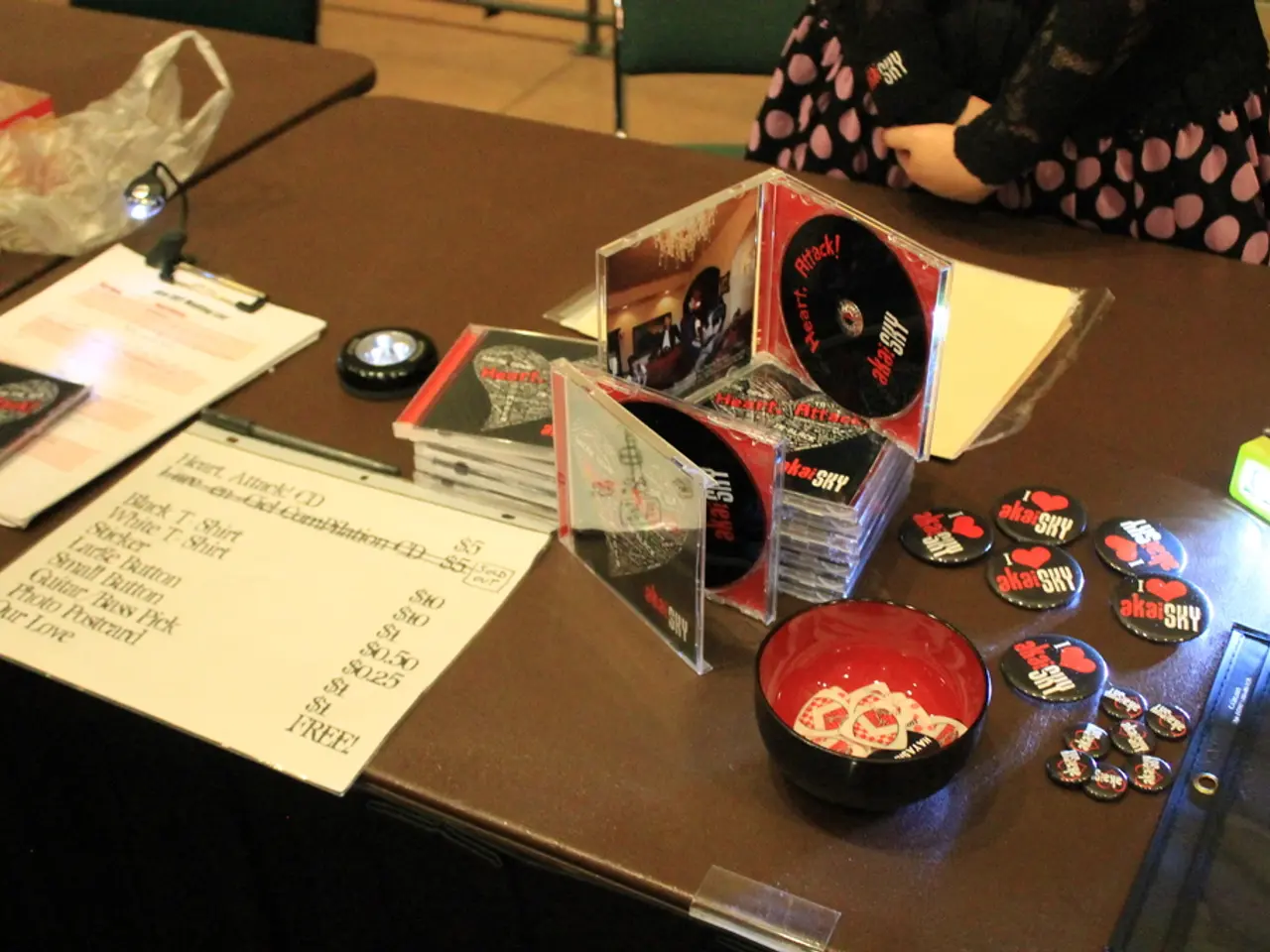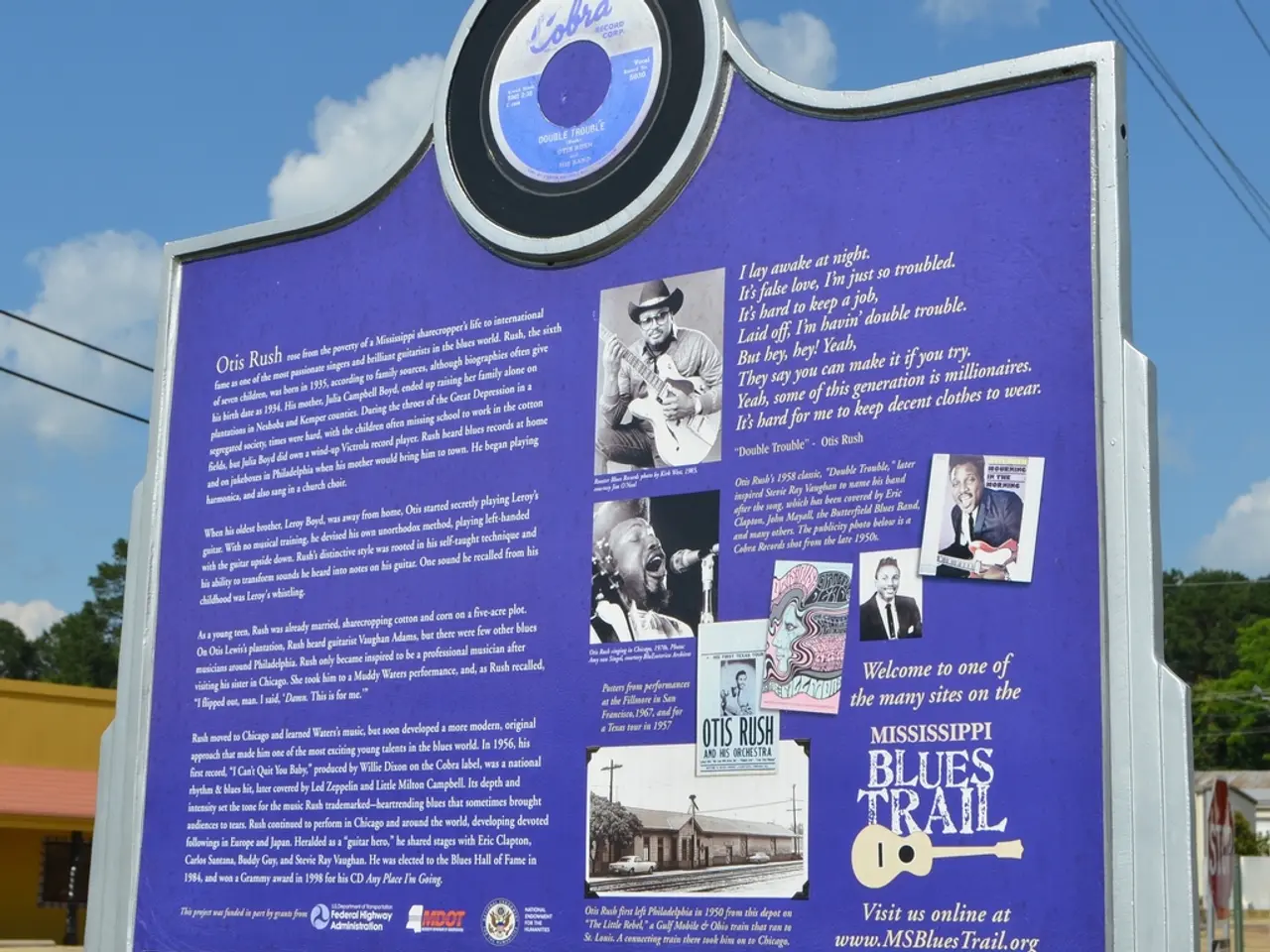Refugee Benefits Card Locations: Various Exchange Points Spread across Bavaria - Refugee Payment Cards: Redemption Stations Spread Across Bavaria (Revised Version)
In a move aimed at preventing payments to smugglers, Bavaria introduced a payment card for asylum seekers last March. After 14 of the 16 states reached an agreement on common standards for the payment card, it has now been launched in almost all federal states, including Bavaria and Munich. However, the card's restrictive features have been widely criticized by human rights groups, NGOs, and civil society actors for undermining asylum seekers' rights and dignity.
The Society Payment Card, also known as the Bezahlkarte, restricts cash withdrawals to typically €50 per month and prohibits transfers, causing much anger and triggering several court rulings against these limitations as unlawful. Organizations such as Amnesty International, Caritas, and Pro Asyl have expressed concern and critique regarding this system and related asylum policies.
Amnesty International and similar human rights groups argue that these restrictions limit asylum seekers' autonomy and dignity, as the card controls how they can access and use their funds, effectively restricting their basic needs and freedom. Caritas and Pro Asyl, prominent NGOs engaged with refugee welfare, have also voiced opposition to the payment card. They argue that these measures exacerbate social policy inequalities, emphasizing that the reduction in benefits starting January 2025 worsens the already precarious situation of asylum seekers.
Beyond financial limitations, these organizations highlight broader issues in reception conditions, such as overcrowding, prolonged use of emergency shelters with inadequate privacy and hygiene, and insufficient funding for long-term housing solutions, especially in major cities like Munich and Berlin. Bavaria's commitment to centralized and restrictive reception centers (AnkER centers) intensifies concerns about asylum seekers' rights and well-being.
In Munich, one exchange station is open for two hours each day, with between 100 and 130 people coming to exchange cash daily. A digital waiting line has been set up to prevent long waiting times at the exchange stations. Asylum seekers in Bavaria can now exchange cash at exchange stations in all government districts.
Despite these challenges, the exchange model of vouchers for cash has been successful, both in Bavaria and nationwide. However, it is important to note that no proven connection has been established between the payment card and the voluntary departures, as no motivation is recorded when migrants leave.
The network behind the exchange initiative, named "Open!", includes organizations like Amnesty International, Caritas, and Pro Asyl. The use of the card can be limited to the district or city where the refugees have their residence in Bavaria. Online purchases and money transfers are partially restricted on the card in Bavaria.
In conclusion, while the Society Payment Card aims to standardize benefit distribution, its restrictive features have been widely criticized by Amnesty International, Caritas, Pro Asyl, and other civil society actors for undermining asylum seekers' rights and dignity. These critiques are compounded by ongoing challenges in reception conditions and social policy frameworks affecting refugees in Germany, notably in Bavaria and Munich.
- Amnesty International, Caritas, and Pro Asyl have expressed concern about the Society Payment Card, also known as the Bezahlkarte, arguing that its cash withdrawal and transfer limitations infringe on asylum seekers' autonomy and dignity.
- In addition to financial limitations, these organizations have highlighted broader issues in reception conditions, such as overcrowding, prolonged use of emergency shelters, and insufficient funding for long-term housing solutions, especially in major cities like Munich and Berlin.
- Beyond the exchange model of vouchers for cash, there are ongoing concerns about the asylum policy in Bavaria and its impact on asylum seekers' rights and well-being, particularly within the context of centralized and restrictive reception centers like the AnkER centers.




